Replacing the factory Audi Bose stereo with an AUX input or stereo
Missing the factory stereo in your Audi with Bose? Trying to make an aftermarket radio work with the harness? Here is a deep dive into the audio signals of Audi’s Bose sound system.
At the beginning of this year, I acquired a 2007 Audi A4 Quattro 2.0T (B7 body-type). This car was a project that took over 6 months – and I hope to document the complete rebuild in another post!
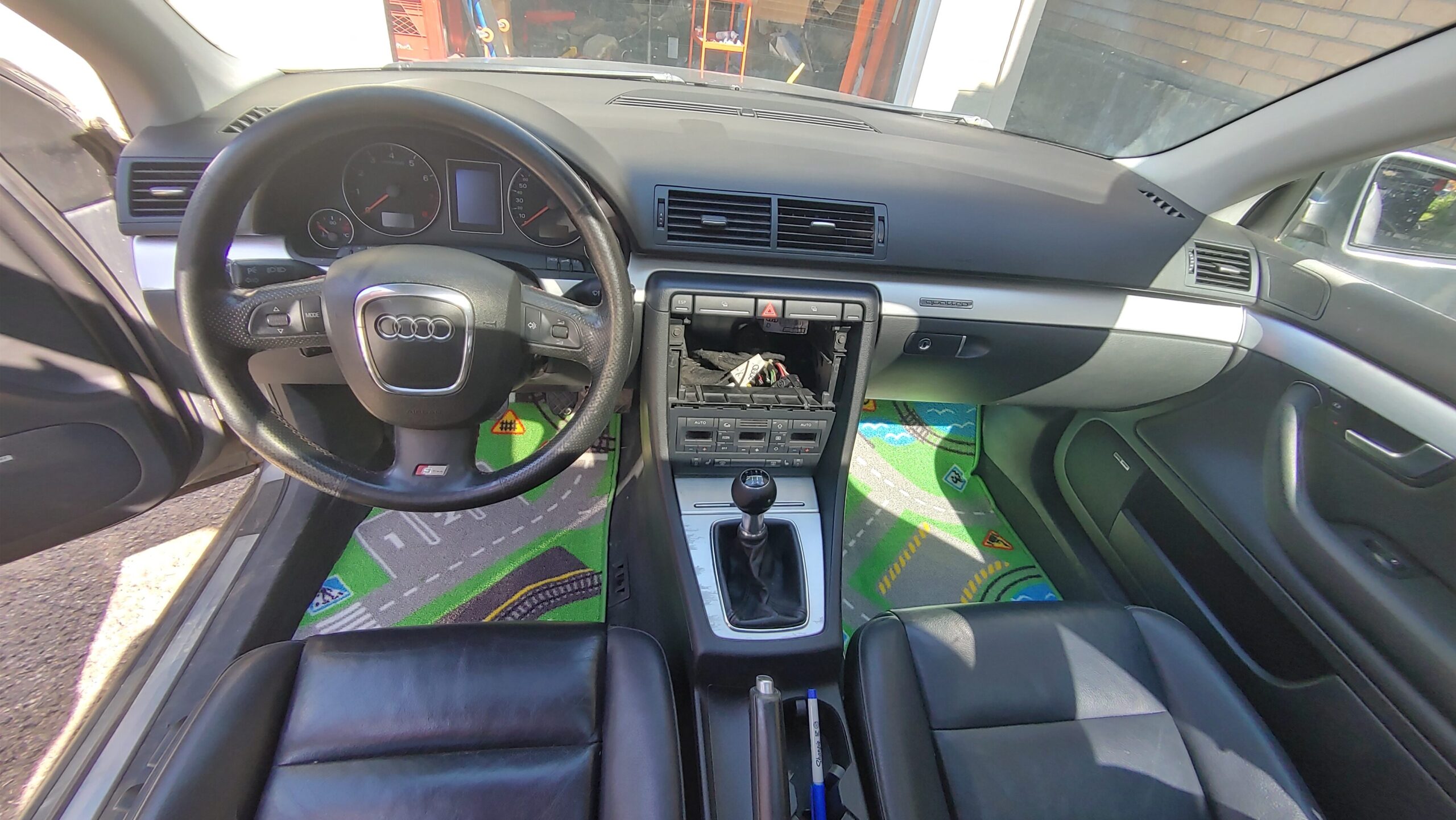
Despite the fact it didn’t run, I was actually more upset that the stereo was missing. Knowing the factory units need to be coded to the car, and that it is hard to find a solid aftermarket harness for these Bose-amplified cars, I wasn’t sure how this would be resolved…
…until today! Read on to learn how to connect an AUX cable directly to the Bose amplifier – WITHOUT modifying any of the car’s wiring!
Wiring Diagrams
Step 1 is always to find a wiring diagram of whatever you are trying to connect.

After a quick image search, I found this huge collection and scrolled to the “Audi Symphony I to RNS E” section. It is a variation of the Bose-equipped Audi harness, so I mapped out the key wires we need to work with.

| Connector (Pin #) | Label | Function |
|---|---|---|
| C EXT (3) | LINE FL | Line level audio (Front Left) |
| C EXT (5) | LINE RL | Line level audio (Rear Left) |
| C EXT (8) | LINE GND | Common ground for line level audio |
| C EXT (9) | LINE FR | Line level audio (Front Right) |
| C EXT (11) | LINE RR | Line level audio (Rear Right) |
| D (13) | ST DSP | Amplifier enable (+12V) |
But wait! We can’t connect an aftermarket stereo directly to these wires!
Why? What’s the problem?
In most cars, the car’s stereo wiring harness is directly wired to the speakers. This means that the stereo unit must provide higher power signals for the speakers to make sound. Thus, most stereos have built-in amplifiers.

The Audi Bose system is different. The speakers are connected to a Bose amplifier, already installed in the trunk of the car. This means that the factory stereo unit does not need a high power audio signal for the speakers: the amplifier takes care of that.
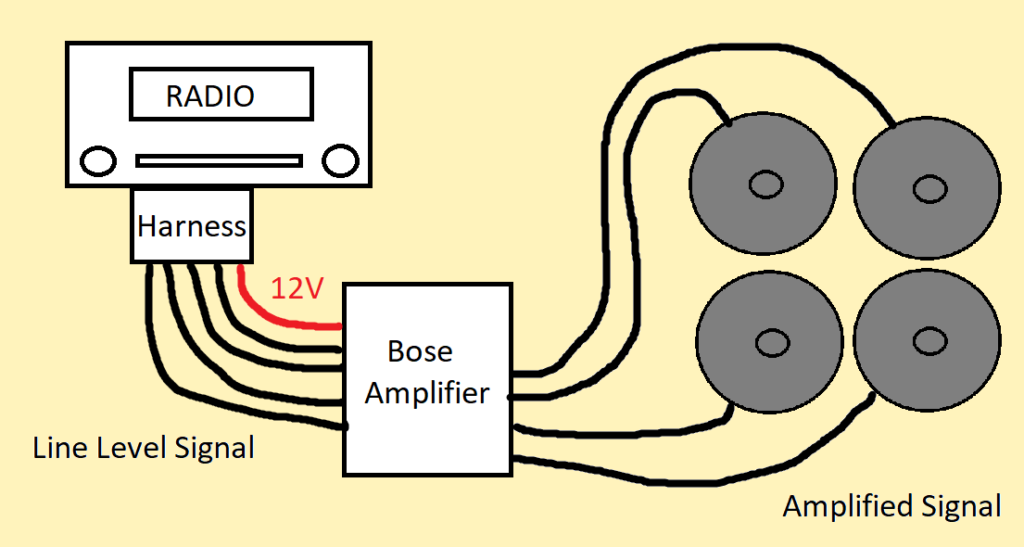
As a result, the car’s stereo wiring harness does not connect directly to the speakers. It expects a line level audio signal instead, which is provided to the amplifier.
Line Level Converter
Line level audio signals are voltage signals with a fixed peak signal amplitude, connected to the high impedance inputs of an amplifier. High impedance leads to lower current, and in the case of audio, does not require a high power signal. So, if we want to provide a clean audio signal to the amplifier, it cannot be amplified.
Of course this isn’t a new problem! They sell line level converters on Amazon for under $20, and buying two of these will allow you to wire in any aftermarket stereo you like.
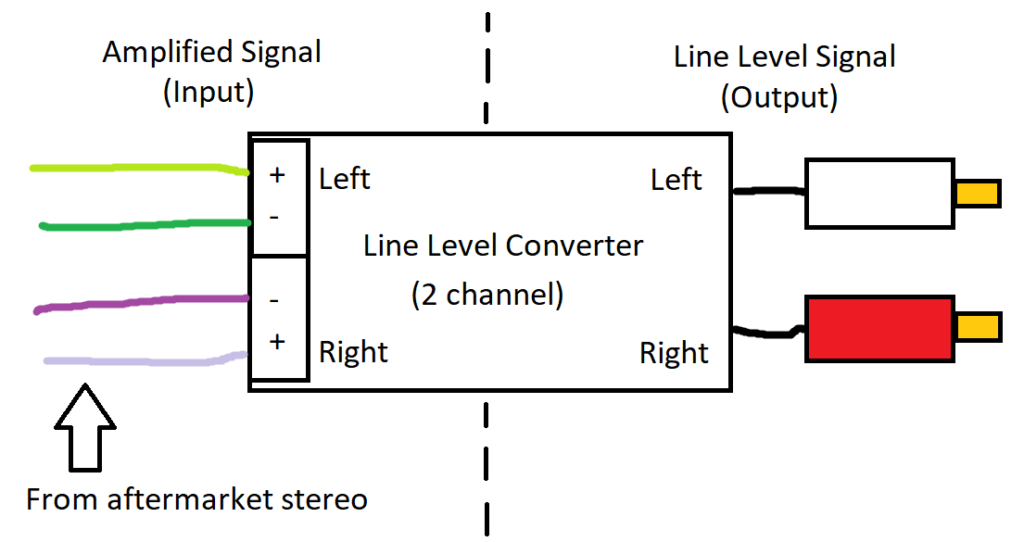
Of course, this costs a bit more money, and this project is on a budget 😉
AUX Cable Hack
Conveniently enough, the audio signal coming from most 3.5mm jacks is more or less constrained to line level voltages. That is to say, at maximum volume, a smartphone will output roughly the maximum line level peak amplitude (slightly higher, but you’d never listen this loud).

Therefore, we can easily wire in a 3.5mm AUX cable to the car’s stereo wiring harness, and use a smartphone as the music player.
2-channel into 4-channel
An AUX cable only has two channels, or is stereo: left and right. Most cars, including the Audi, have 4 speaker channels (Front Left, Front Right, Rear Left, Rear Right). Car stereos provide balance controls to adjust the relative left/right volumes, and fading controls to adjust the relative front/rear volumes.
In our simple solution, we will have no control over the balance or fading. We will simply connect the Left input to both Front Left and Rear Left channels of the Bose amplifier, and the Right input to both Front Right and Rear Right channels.

Amplifier Power
With the audio signals sorted, we just need a way to turn on the amplifier. Pin 13 of Connector D is the power input for the Bose amplifier. By providing it with 12V, the amplifier turns on and sound will come out.
The stereo harness has a few 12V sources, such as Pin 15 of Connector D. However, the 12V supply is constant there, meaning the amplifier will be powered even when the car is off. Obviously, this is bad because your battery will die overnight.
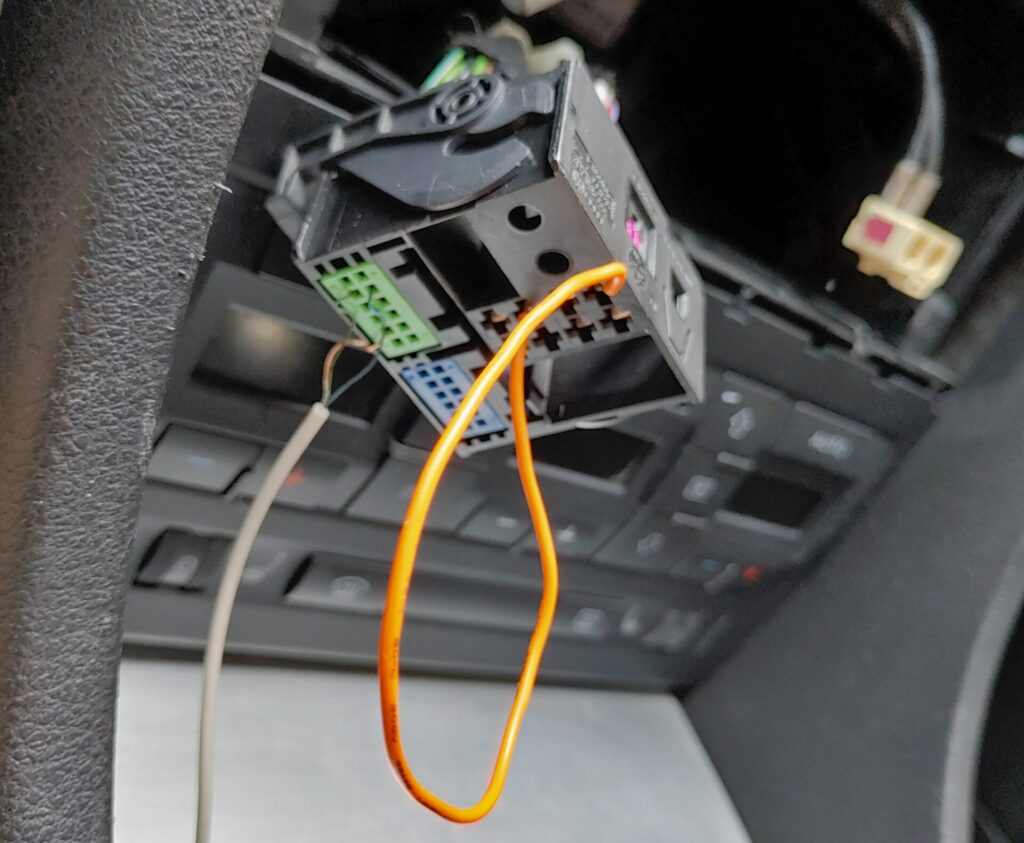
The key is to wire Pin 13 to an accessory switched 12V supply. You can do this using an add-a-fuse, or by finding another accessory line (such as from the HVAC harness below the stereo). Just make sure that, wherever the power is coming from, it can supply enough current.
In my case, I went very cheap and used a 12V cigarette lighter accessory plug. I manually (dis)connect it to use the amplifier. Manual power switching is not ideal, because humans are likely to forget and leave the amplifier on after leaving the vehicle. Accessory switching is best.
Removable Solution
Alright – we know how to turn on the amplifier, and how we need to connect a 3.5mm cable to the green socket of the car’s stereo wiring harness.
How do we do this without cutting the wires?
- Connector D uses 2.8mm spade terminals – we can crimp a male spade connector to our 12V wire
- Connector C is a standard 0.100″ pitch DIP footprint – we can use any male DIP header with 2×6 pins
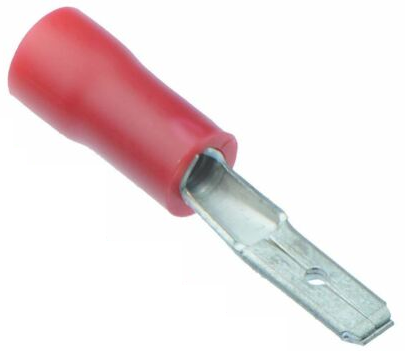
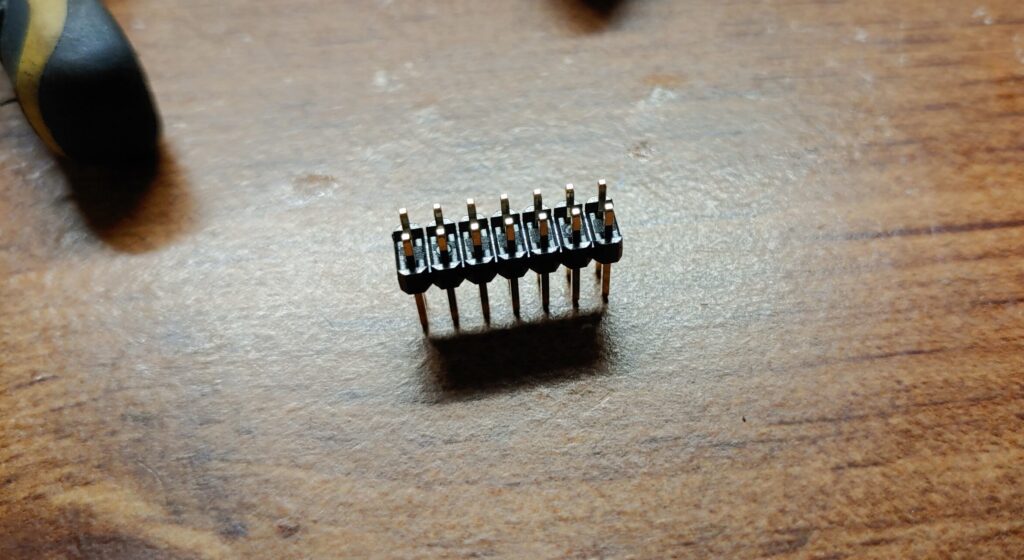
Final Wiring Diagram
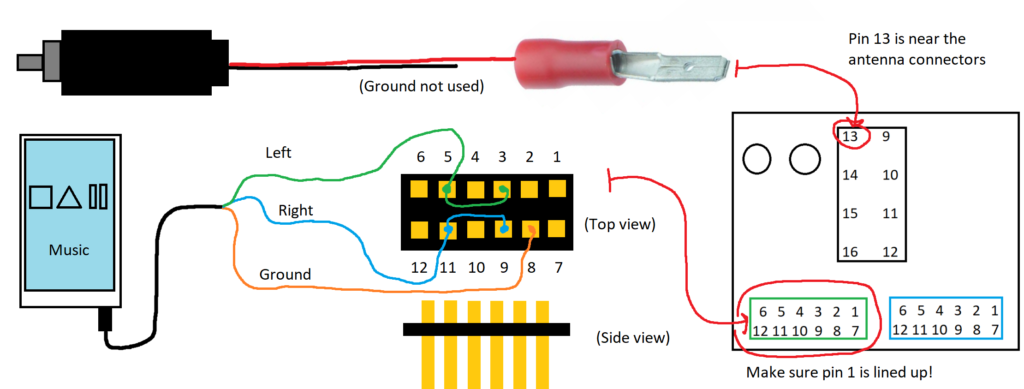
Success!
Here we have it: a removable AUX input that replaces the factory stereo, without hacking any of the car’s wiring.
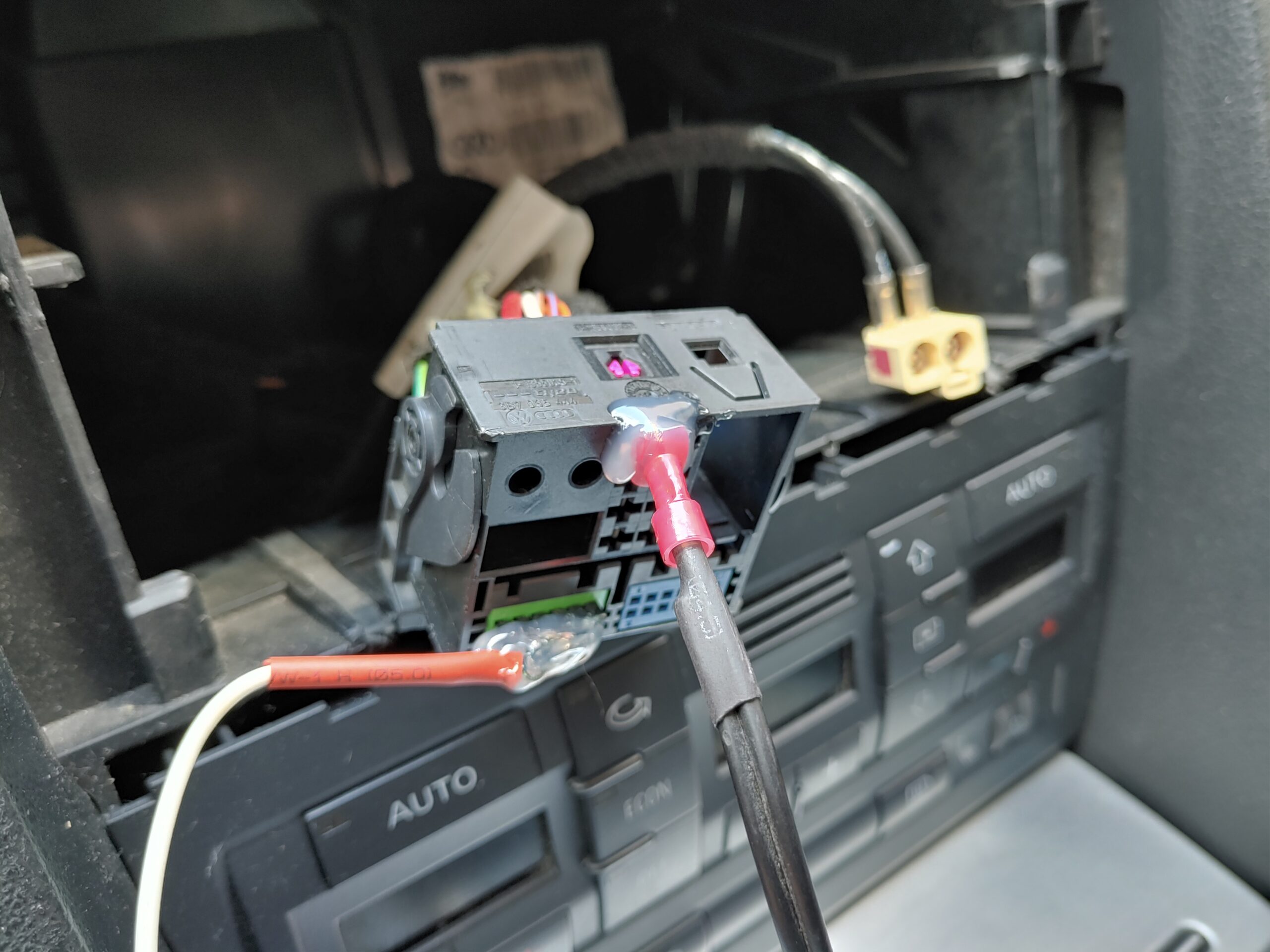
Update (a few days later)
To come full circle, I dug out my custom Bluetooth to AUX adapter to serve as my audio source.
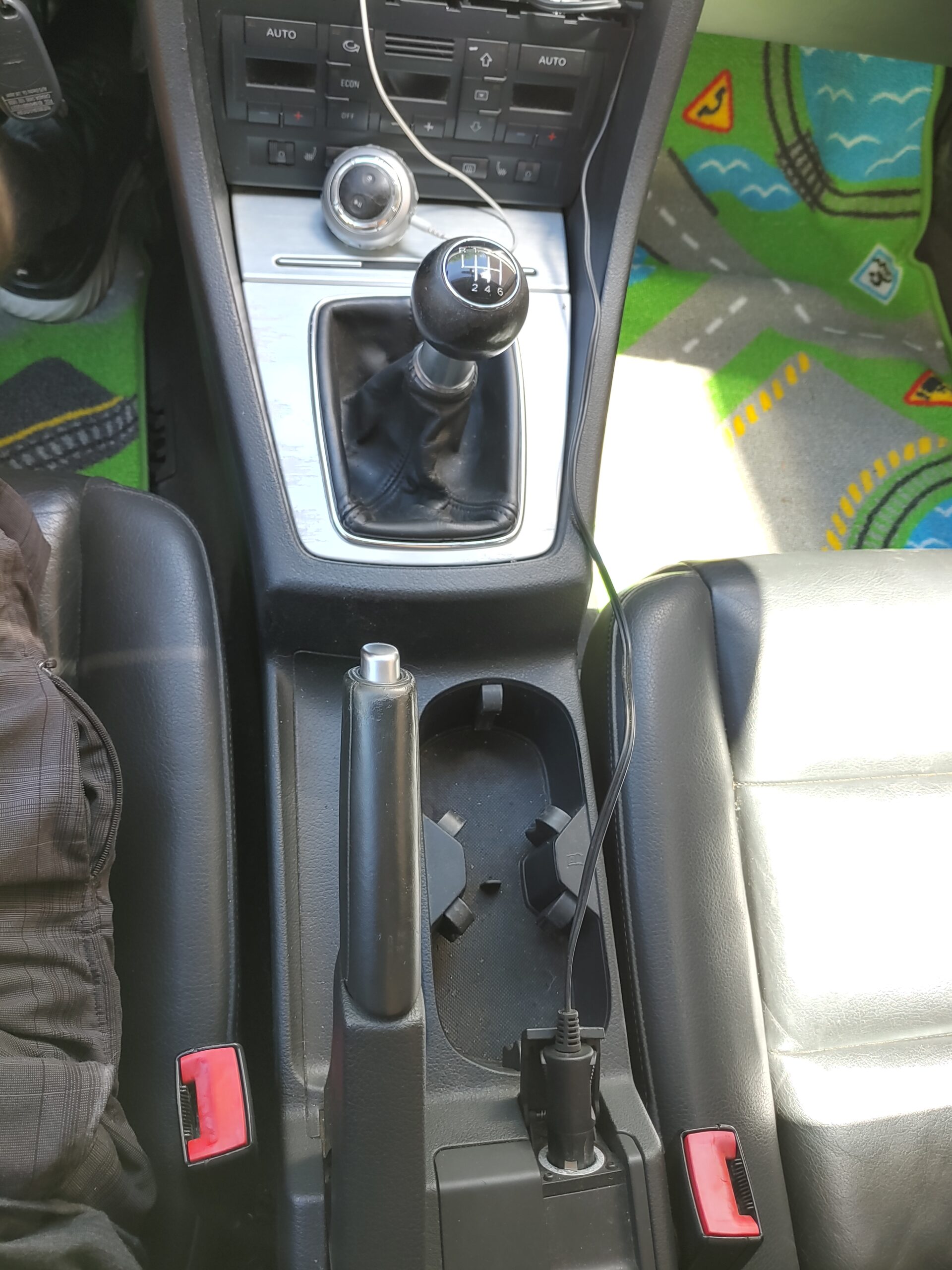
Now, my phone connects wirelessly to the Audi and glorious Bluetooth 2.0 sound comes from the Bose system!
My radio works but no sound out of speakers all of sudden 😔